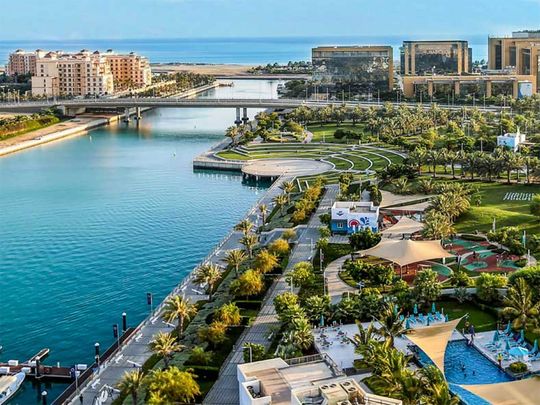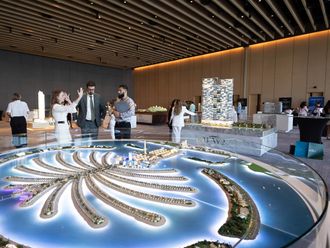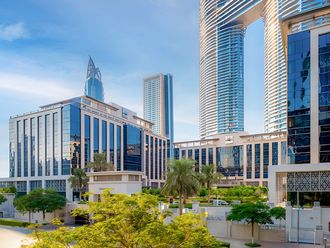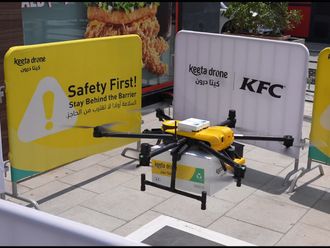
Dubai: The developer behind one of Saudi Arabia’s biggest economic hubs, King Abdullah Economic City, is going for a full restructuring of its SR3.8 billion debt owed to banks.
This is part of a capital optimisation plan drawn up by Emaar the Economic City, who is the developer of the massive Saudi development, launched in the mid-2000s.
The plan also will lead to the full conversion to its share capital of SR4 billion in what it owes the Saudi wealth fund PIF.
The third prong of the capital optimisation strategy is to issue a new convertible shareholder facility of up to SR1 billion from PIF.
And finally, PIF intends to go for a capital decrease to ‘offset all its accumulated losses’. PIF is the biggest shareholder in the entity, with 25 per cent.
UAE based Emaar Middle East holds 4.41 per cent.
In terms of the scale of what Emaar the Economic City hopes to achieve, it's nothing short of transformational, according to market analysts.
"We are evaluating a series of further structural and functional measures to ensure EEC returns to full financial health, strengthening our key relationships with various stakeholders," said Abdulaziz Ibrahim Alnowaiser, CEO of EEC. "In addition to refreshing our long-term strategy periodically to establish a clear roadmap for reviving the Company’s ability to achieve its core mission of developing this exceptional property and delivering shareholder value.”
'Stabilise' the finances
The capital optimisation plans is based on 'extensive assessment and analysis over the past two years'. It is intended to create a 'comprehensive solution to stabilize the company’s financial and operational platforms'. Plus, optimise the capital structure and 'establish a solid footing for value creation and maximization in the long term'.
The 185-square kilometer ‘City’ is located north of Jeddah and is anchored by King Abdullah Port. With a prime spot on the Kingdom’s Red Sea shoreline, the hub is emerging as one of the key centers generating momentum for the Saudi logistics and trade sectors.
On Saudi Tadawul, Emaar the Economic City’s stock has since January traced a 13 per cent gain. On Sunday, when the debt restructuring strategy was announced, it closed 0.22 per cent down.
"Emaar the Ecomomic City stands at a vital inflection point, as we pivot from a period of transition to one of opportunity," said Fahad Al Saif, Chairman, in a statement. "We are setting the stage for a transformation that will not only drive value creation, but also redefine our role in the Kingdom to achieve the goals of Vision 2030."
Debt to banks
The new plan will re-align the repayment schedules for EEC’s bank debt facilities to 'match the company’s investment plan, turnaround strategy and liquidity profile'. The debt will come under one new syndicated facility agreement that is fully Sharia-compliant. The current lenders are Alinma Bank, Saudi Awwal Bank, Banque Saudi Fransi and Saudi National Bank for a combined SR3.8 billion.
Capital decrease
A slimming down of the capital will help offset EEC’s accumulated losses. This will 'have no adverse impact on the operations of the company, but is designed to stabilize EEC’s financial position, creating a healthier balance-sheet and greater potential for future growth', said a statement.
Conversion of SR4b debt
This is made up of a SR2.9 billion facility from the Saudi Ministry of Finance, recently novated to PIF, and a SR1.1 billion shareholder loan from PIF. "This conversion will significantly de-leverage EEC’s balance-sheet and reduce interest expense with the added benefit of shoring up the company’s share capital position," according to the developer.
Once the capital restructure gets done, EEC will get the space to focus on real estate and operations. The company will focus on ‘attracting and retaining’ reputable real estate developers and investors for a ‘more efficient and optimised masterplan’ for the City.
"EEC will prioritise developing an attractive ecosystem for industrial, logistics and non-industrial businesses to flourish by developing sector specialised facilities and services for them to access," is the medium- to longer term intent.












